Yvette Bautista
Morgan Stanley Children’s Hospital,
USA
Abstract Title: Bubbling Through the Years: Safe and Effective Use of Bubble CPAP in the NICU
Biography:
Yvette Bautista has completed her Master’s Degree in Nursing at Columbia University NY, NY. She is a Clinical Nurse III in Neonatal ICU at Morgan Stanley Children’s Hospital of New York, one of the leading level IV NICU in the nation.
Research Interest:
Bubble CPAP (Continuous Positive Airway Pressure) is a gentle, noninvasive respiratory support system used to manage newborns with respiratory distress, provides continuous pressure that helps prevent decruitment of alveoli, increasing the lungs’ functional residual capacity, and thus decreasing the work of breathing. CPAP is an effective therapy for most babies with RDS and have respiratory drive. It enhances production of surfactant and conserves existing surfactant. It is less expensive than exogenous surfactant and less invasive than mechanical ventilation. It is gentle ventilation that supports neonates own breathing, It does not require intubation which can have complications particularly to tiny babies. The oscillation of BCPAP has a high frequency ventilation effect. It increases transpulmonary pressure and FRC, prevents alveolar collapse and improves lung compliance: increases airway diameter, splints the airway and stabilizes chest wall: stimulates lung growth and conserves surfactant. Nurses play a pivotal role in making BCAP effective at Morgan Stanley Children Hospital of New York. Most of us are trained by Dr. Wung himself. There are important principles of application needed to ensure utmost efficacy. This includes choosing appropriate size prong, ensuring proper seal, developmentally appropriate positioning, frequent system check and monitoring for complications.

